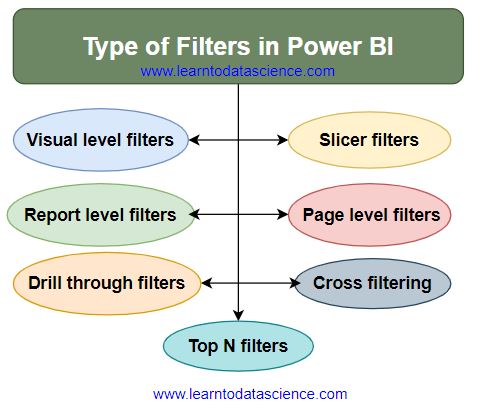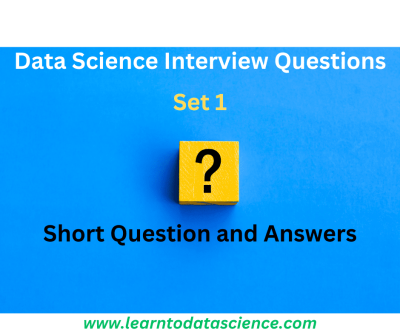Data Science
What is data science?
Data science is an interdisciplinary field that combines techniques from statistics, computer science, and domain knowledge to extract insights and knowledge from data. Data scientists analyze large datasets to uncover patterns, trends, and correlations that can inform business decisions and drive innovation.
What are the job prospects in data science?
Data science offers a wide range of job opportunities, including data scientist, data analyst, machine learning engineer, data engineer, business intelligence analyst, and data architect. The demand for skilled data scientists continues to grow across various industries.
What skills are required for a career in data science?
Skills required for a career in data science include proficiency in programming languages like Python and R, knowledge of statistics and mathematics, expertise in data manipulation and visualization tools, understanding of machine learning algorithms, and strong communication and problem-solving skills.
What is the salary range for data scientists?
The salary for data scientists varies depending on factors such as location, experience, industry, and education level. On average, data scientists earn competitive salaries, with entry-level positions starting around $80,000 to $100,000 per year and senior-level positions earning well over $150,000 per year.
What are some popular tools and technologies used in data science?
Popular tools and technologies used in data science include programming languages like Python and R, data manipulation libraries like Pandas and NumPy, machine learning frameworks like TensorFlow and scikit-learn, and visualization tools like Matplotlib and seaborn.
What is the difference between data science and data analytics?
Data science involves the entire lifecycle of data, including data collection, cleaning, analysis, and interpretation, whereas data analytics focuses on analyzing past data to derive insights and make data-driven decisions. Data science is more comprehensive and incorporates advanced techniques like machine learning.
What are some data science job roles?
Data science job roles include data scientist, data analyst, machine learning engineer, data engineer, business intelligence analyst, data architect, and data scientist manager. Each role may have different responsibilities and required skill sets.
What are some applications of data science?
Data science has applications in various industries, including healthcare (predictive analytics for disease diagnosis), finance (fraud detection and risk assessment), e-commerce (recommendation systems), marketing (customer segmentation), and manufacturing (predictive maintenance).
How do I become a data scientist?
To become a data scientist, you typically need a strong foundation in mathematics, statistics, and programming. Pursuing a degree in a related field such as computer science, statistics, or data science can be helpful. Additionally, gaining practical experience through projects, internships, and online courses can supplement your learning.
What are some popular data science programs or courses?
Some popular data science programs or courses include the “Data Science Specialization” on Coursera by Johns Hopkins University, the “Applied Data Science with Python” specialization on Coursera by the University of Michigan, and the “Introduction to Data Science” course on edX by Microsoft. These courses cover various topics in data science, including programming, statistics, machine learning, and data analysis.

Artificial Intelligence (AI)
What is artificial intelligence (AI)?
Artificial intelligence (AI) refers to the simulation of human intelligence in machines that are programmed to think and learn like humans. AI encompasses various technologies such as machine learning, natural language processing, computer vision, and robotics.
What is the definition of artificial intelligence?
Artificial intelligence (AI) is the branch of computer science that aims to create intelligent machines capable of performing tasks that typically require human intelligence, such as understanding natural language, recognizing patterns, and making decisions.
What are the applications of artificial intelligence?
Artificial intelligence has numerous applications across various industries, including healthcare (diagnosis and treatment planning), finance (fraud detection and risk assessment), transportation (autonomous vehicles), retail (recommendation systems), and gaming (game playing agents).
What are some examples of artificial intelligence technology?
Examples of artificial intelligence technology include virtual assistants like Siri and Alexa, self-driving cars, facial recognition systems, recommendation engines (e.g., Netflix recommendations), chatbots, and autonomous drones.
What are the benefits of artificial intelligence?
Artificial intelligence offers various benefits, including increased productivity and efficiency, improved decision-making through data analysis, enhanced automation of repetitive tasks, better personalized experiences for users, and advancements in various industries such as healthcare and transportation.
What are the negative impacts of artificial intelligence on society?
While artificial intelligence offers numerous benefits, it also raises concerns about job displacement, privacy breaches, biases in algorithms, and potential misuse of AI-powered technologies such as autonomous weapons.
Is artificial intelligence good for society?
Yes, artificial intelligence has the potential to bring about significant positive impacts on society, including improved healthcare, enhanced efficiency in industries, automation of tedious tasks, and advancements in scientific research.
What is the difference between machine learning and artificial intelligence?
Machine learning is a subset of artificial intelligence focused on developing algorithms that enable computers to learn from data and make predictions without being explicitly programmed. Artificial intelligence, on the other hand, encompasses a broader range of technologies and approaches to simulate human intelligence in machines.
What is artificial general intelligence (AGI)?
Artificial general intelligence (AGI) refers to AI systems that possess human-like cognitive abilities, including the ability to understand, learn, and apply knowledge across different domains. AGI aims to replicate human intelligence in its entirety.
What are the cons of artificial intelligence?
Some cons of artificial intelligence include job displacement due to automation, ethical concerns regarding privacy and data security, biases in algorithms leading to unfair decision-making, and the potential for misuse of AI-powered technologies.



